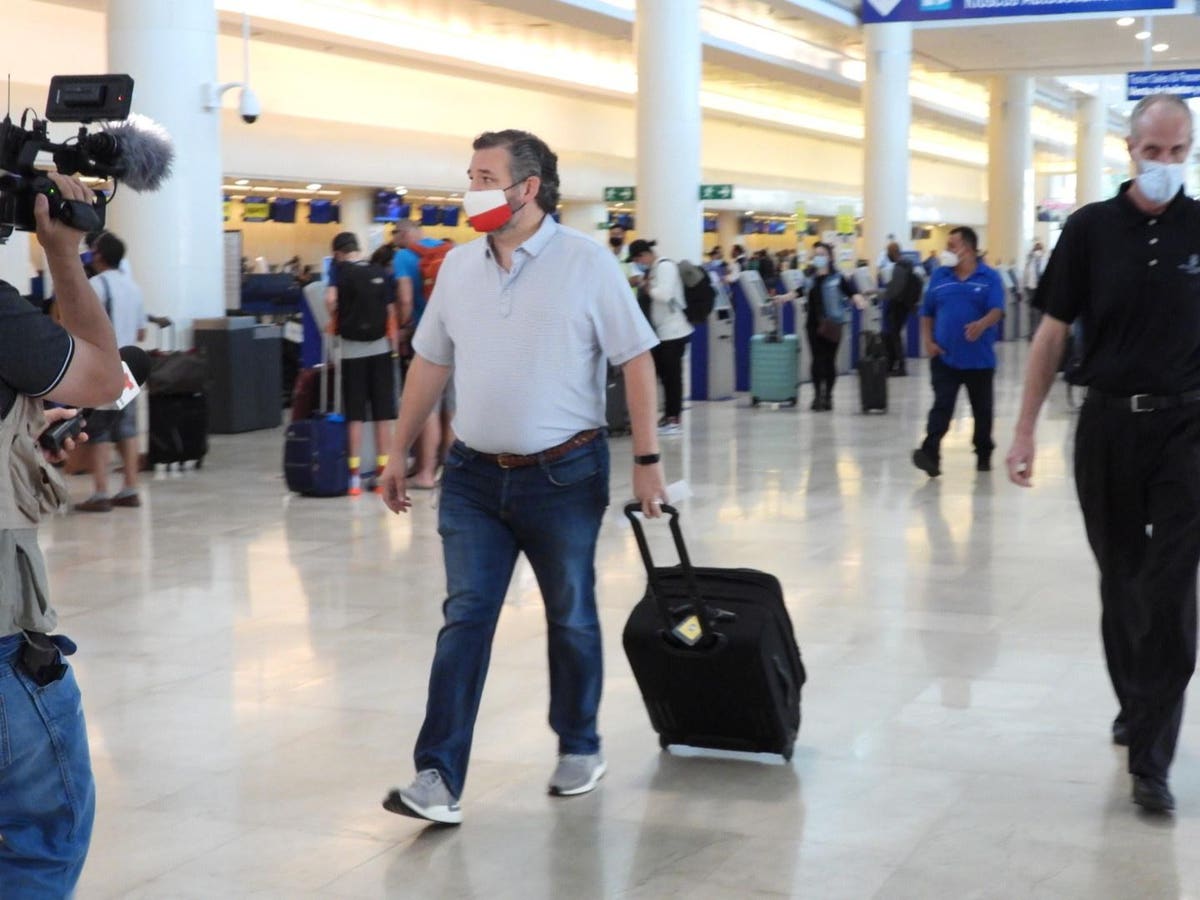Senator Ted Cruz has attached an amendment to the Federal Aviation Administration Reauthorization Bill. The amendment would provide free personal protection and Transportation Security Administration special handling for Members of Congress, Cabinet Members, and Federal Judges at U.S. commercial airports.
The amendment would require that any commercial U.S. airport the official and their family members or staff might travel through offer a security escort for the official and their entourage. It would also require the TSA to make special arrangements for private security screening of the officials and those accompanying them. The amendment calls on the TSA and FAA to calculate the costs of offering these additional protection services and to brief Congress on requirements for staffing and resources.
Cruz Asks TSA To Protect Lawmakers At Airports
The Cruz amendment attached to FAA Reauthorization Act S.1939 requires the protective agency attached to the official to make the application for protection on behalf of officials under “threat,” as defined by their protective agency. In the case of members of Congress, this would be the U.S. Capitol Police. For Cabinet Members, it would be the Secret Service, and for Federal Judges, it would be the Marshall Service.
Senator Cruz has previously faced criticism for flying to Cancun with his family during a power grid failure in Texas caused by a severe winter storm.
Politico reports that the Cruz amendment “could make it much less likely that the politicians’ comings and goings would become fodder for embarrassing news reports and late-night comedy mockery.” Cruz told Politico the amendment would protect “endangered” lawmakers traveling through public airports.
The FAA Reauthorization, already delayed twice, would fund the FAA through the financial year 2028, covering activities and programs related to airport planning and development, facilities and equipment, and operations.
What Is In The FAA Authorization Bill?
The FAA Reauthorization Bill covers several critical aviation issues, such as training more air traffic controllers, updating the training process for air traffic controllers, and would fund the FAA Contract Tower Program.
The Reauthorization requires the FAA to deliver critical programs under the Next Generation Air Transportation System. NextGen is an initiative by the FAA to modernize the U.S. National Airspace System, upgrading air traffic infrastructure communications, navigation, surveillance, automation, and information management. The main goal of NextGen is to increase the safety, efficiency, capacity, predictability, flexibility, and resiliency of air services in the U.S.
The FAA Reauthorization also contains consumer protections. For example, it would require airlines to fully refund passengers who hold a non-refundable ticket for a canceled or significantly delayed flight. It also makes policy provisions requiring airlines to seat young children next to an accompanying adult without charging an additional fee. Some airlines have already changed their family seating policy in anticipation of this requirement.
Provisions to make flying more accessible to all travelers are included with minimum training standards for airline personnel who assist wheelchair users. The Bill also requires airlines to publish information related to the stowage of powered wheelchairs, including cargo hold dimensions. United Airlines introduced a filter for wheelchair dimensions on its flight search system last year.
The FAA Reauthorization also contains various critical programs for the nation’s airports. For example, it adds a Department of Transportation grant program for airport environmental sustainability, helping dispose of products containing per- or poly-fluoroalkyl substances and purchasing fluorine-free fire fighting agents.
Additional provisions include updating FAA safety standards for commercial air tour operators and establishing a regulatory pathway to certify and approve commercial drones to fly beyond the visual line of sight.
FAA Reauthorization Delayed
The government extended the FAA’s authorization until December 31, 2023, when the existing five-year funding law expired on September 30, 2023. The second extension granted to March 8, 2024, gives lawmakers more time to work on a five-year reauthorization of the FAA.
Disagreements during a markup in the Commerce Committee have stalled the bill’s advancement. Contentious policy issues include raising the mandatory pilot retirement age from 65 to 67, changes to pilot training requirements, and the perimeter rule around Ronald Reagan Washington National Airport. This rule restricts nonstop flights offered at the airport closest to Congress to within 1,250 miles, with a few exemptions granted over the years.
The proposed Cruz amendment to the FAA Reauthorization bill would provide additional security for officials who fly out of DCA during their flight connections at U.S. commercial airports en route to their final destination. The amendment proposed by Senator Cruz is not limited to individuals flying on official government business, but would not cover individuals while traveling abroad.
Read the full article here





